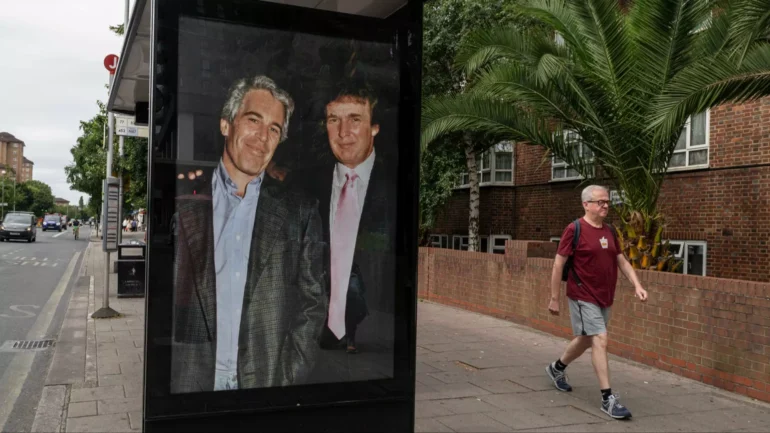On July 17, 2025, President Donald Trump directed Attorney General Pam Bondi to request the release of grand jury testimony related to the case of Jeffrey Epstein, the disgraced financier and convicted sex offender. This move comes as the Trump administration faces intense pressure from both supporters and critics to disclose more details about Epstein’s case, which has been clouded by conspiracy theories and public scrutiny for years.
The Directive and Its Context
In a post on Truth Social, Trump stated, “Based on the ridiculous amount of publicity given to Jeffrey Epstein, I have asked Attorney General Pam Bondi to produce any and all pertinent Grand Jury testimony, subject to Court approval. This SCAM, perpetuated by the Democrats, should end, right now!” Bondi quickly responded on X, saying, “We are ready to move the court tomorrow to unseal the grand jury transcripts.”
The decision follows a controversial memo released by the Justice Department and FBI, which claimed Epstein did not have a “client list” implicating prominent figures, did not attempt to blackmail anyone, and died by suicide in 2019 while awaiting trial. This memo sparked backlash, particularly from some of Trump’s most loyal supporters, who had expected significant revelations about Epstein’s connections. The administration’s handling of the case has caused rifts within the MAGA community, with figures like FBI Deputy Director Dan Bongino clashing with Bondi over the issue.
Why Grand Jury Transcripts Matter
Grand juries are groups of citizens who review evidence to determine if there’s enough to charge someone with a crime. Their proceedings are typically kept secret under federal law, making Trump’s request to unseal these transcripts highly unusual. Legal expert Mitchell Epner, a former federal prosecutor, noted that such a move is unprecedented in his 30 years of experience. He suggested the material could include a vast amount of data, potentially ranging from mundane to highly significant details.
However, releasing these transcripts isn’t straightforward. The Department of Justice must convince a federal judge in New York, where Epstein was indicted in 2019, to approve the release. This process could take weeks or even months, and some of Epstein’s associates or victims may oppose the disclosure to protect their privacy. Conversely, some victims might support transparency to shed light on Epstein’s crimes.
The Epstein Case: A Persistent Mystery
Epstein’s case has long been a lightning rod for speculation. In the 2000s, he was investigated in Florida, resulting in a controversial non-prosecution agreement and a guilty plea to state prostitution charges. In 2019, he faced federal child sex trafficking charges in Manhattan but died in custody, officially ruled a suicide. His associate, Ghislaine Maxwell, was convicted in 2021 for aiding Epstein’s crimes and is serving a 20-year sentence.
The lack of transparency has fueled conspiracy theories, including claims of a hidden “client list” or foul play in Epstein’s death. Bondi previously hinted at having significant materials, including flight logs and names, but the recent memo disappointed many who expected bombshell revelations. Some Republicans, including conservative commentator Charlie Kirk, praised Trump’s latest directive as a win for transparency, while others remain skeptical after repeated promises of disclosures that haven’t materialized.
Political Fallout and Public Reaction
Trump’s order comes amid other controversies, including his denial of a Wall Street Journal report alleging he sent a “bawdy” birthday letter to Epstein in 2003, before Epstein’s crimes were widely known. The letter, reportedly featuring a hand-drawn outline of a naked woman, was part of a collection curated by Maxwell. Trump called the story “false, malicious, and defamatory,” threatening to sue the newspaper and its parent company, News Corp.
The administration’s stance has also drawn criticism from within the Republican Party. House Republicans have blocked Democratic attempts to force the release of Epstein-related files, and Trump has dismissed some of his critics as “weaklings” pushing a “Jeffrey Epstein Hoax.” White House Press Secretary Karoline Leavitt stated that Trump does not support appointing a special prosecutor for the case, further complicating the narrative.
What’s Next?
The outcome of Trump’s directive remains uncertain. If approved, the release of grand jury transcripts could provide new insights into Epstein’s case, but it might also reignite debates about privacy and the scope of the disclosures. As Epner humorously remarked, the material could reveal anything from “the location of Jimmy Hoffa’s corpse” to nothing particularly groundbreaking.
For now, the public awaits the court’s decision, which will determine whether these long-secret documents will finally see the light of day. The Epstein saga continues to captivate and divide, raising questions about transparency, justice, and the influence of powerful figures.
